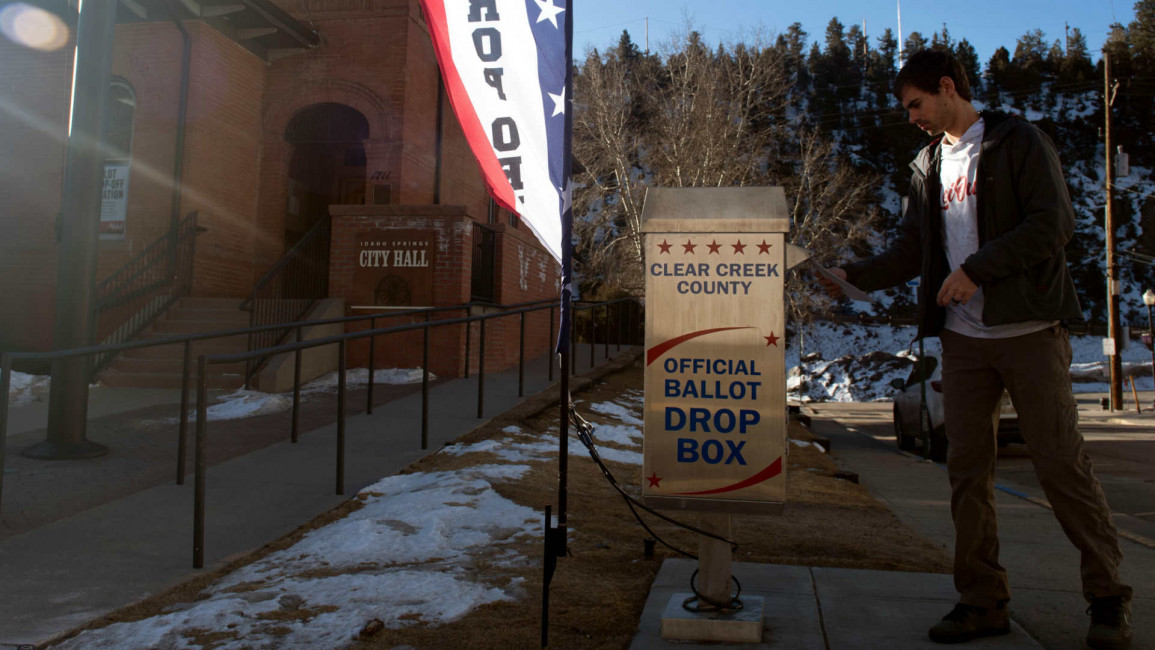Super Tuesday's Sanders-Biden fight will shape the Democratic race
Vermont Senator Bernie Sanders began the day as the Democrats' undisputed presidential front-runner, backed by a coalition of energised liberals, young voters and Latinos. The progressive was fighting to beat back the sudden surge of former Vice President Joe Biden, who seized a wave of new support from some of his former Democratic presidential rivals just hours before polls opened in his quest to lead the party's centrist wing.
The clash between the two men, each leading coalitions of disparate demographics and political beliefs, peaked on a day that could determine whether the Democrats' 2020 nomination fight will stretch all the way to the party's July convention or be decided much sooner.
Yet with voting underway across 14 states and one US territory, American Samoa, the political world was bracing for a long night almost certain to provide new drama. The crown jewel of Super Tuesday, California, continues voting until 11 p.m. ET (7 a.m. GMT), with final results not expected until early Wednesday or even later.
The day was also testing the strength of another Democratic contender, New York billionaire Mike Bloomberg, who was appearing on a presidential ballot for the first time after skipping all four contests last month.
Bloomberg banked on more than half a billion dollars in advertising and ground operations in an unorthodox and untested strategy that relied on Biden's perceived weaknesses earlier in the year. Bloomberg and Massachusetts Senator Elizabeth Warren loomed as potential spoilers as the candidates jockeyed to cross the voting threshold to secure delegates, a move that could prolong the nominating battle.
The Democratic race has shifted dramatically over the past three days as Biden capitalised on his commanding South Carolina victory to persuade anxious establishment allies to rally behind his campaign. Amy Klobuchar and Pete Buttigieg abruptly ended their campaigns and endorsed Biden, though their late departures meant their names will still appear on ballots.
Biden's new supporters fanned out on morning television shows to praise him.
Sanders and his closest advisers pushed back against the sudden shift of the party's establishment and donor class toward Biden.
Read more: 'He's one of us': How 'Amo' Bernie Sanders won the hearts and minds of Arab-Americans
In a Tuesday fundraising message, campaign manager Faiz Shakir declared: "The political establishment has made their choice: Anybody but Bernie Sanders."
|
|
"The truth is, we've always known we were taking on the entire damn one percent of this country," he added. "But we have something they do not have: people. Lots and lots of people."
Tuesday was the most anticipated of crossroads in the Democrats' turbulent primary season as the party struggles to unify behind a clear message or messenger in its urgent quest to defeat Trump.
Bloomberg suggested that the primary fight will go on for months regardless of what happens on Tuesday.
The former New York City mayor acknowledged that he may not win any of Tuesday's contests and said his only chance was at a contested convention this July in Milwaukee: "I don't think I can win any other way."
The strongest candidates, at least before polls closed, appeared to be Sanders and Biden.
Sanders, a 78-year-old democratic socialist who has scored four consecutive first- or second-place finishes, was relying on an energised coalition drawn to his promise to transform the nation's political and economic systems.
Biden, a 77-year-old lifelong politician, has struggled to excite voters at times with a message emphasising a pragmatic approach to governing and modest change.
Yet a new wave of support appeared to buoy his campaign at a critical moment.
Just three days earlier, a blowout victory in South Carolina rescued his flailing candidacy. And while he is not as well-staffed or well-funded as his rivals, Biden entered Super Tuesday confident in his ability to win states that resemble South Carolina's demographic makeup: those with large African American and white moderate populations. That makes Alabama, North Carolina, Arkansas, Tennessee and
Virginia potential Biden victories, even in a splintered field.
Some of Super Tuesday's more valuable terrain is less forgiving.
Sanders has predicted victory in California, the day's largest delegate prize. The state, like delegate-rich Texas, plays to his strengths given their significant factions of liberal whites, large urban areas with younger voters and strong Latino populations. Sanders also enjoys obvious advantages in his home state of Vermont and in neighboring Massachusetts, where he's eyeing a knockout blow against progressive rival Warren in her home state.
While Tuesday's outcome is uncertain, Biden's team was confident that the fast-moving trajectory of the race was moving its way. One complication: A significant number of votes were cast in the days and weeks leading up to Tuesday's elections when Buttigieg, Klobuchar and Tom Steyer were still in the race.
At least 1.4 million people have already voted in California's Democratic primary, for example, according to data collected by The Associated Press. In Texas, more than 1 million early Democratic votes have been cast. And in Virginia, nearly 28,000 people voted early, twice as many as in 2016.
Through four primary contests, the AP allocated 60 delegates to Sanders, 54 to Biden and eight to Warren.
The first four states were always more about momentum than math. Super Tuesday states offer a trove of 1,344 new delegates based on how candidates finish. Just 155 delegates have been awarded so far.
Follow us on Facebook, Twitter and Instagram to stay connected



